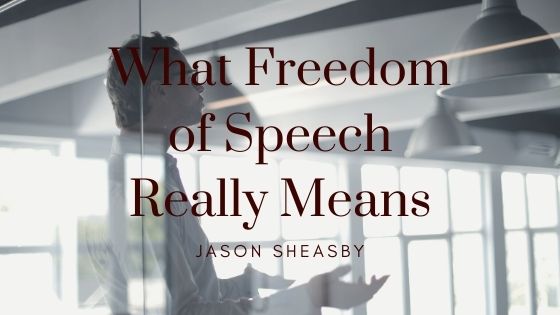When it comes to political debates on social media, the words “freedom of speech” will no doubt pop up during an argument at least once. While it’s true that the First Amendment of the U.S. Constitution protects Americans’ freedom of speech, the concept itself is often misunderstood by much of the public. To know what is and isn’t your right under this all-important amendment, it’s best to know what it means and what does—or does not—fall under this category.
Also note that this piece is meant to be informative, not to act as legal advice. If you wish to pursue a case based around freedom of speech, contact an attorney or law firm.
What is freedom of speech?
Freedom of speech doesn’t apply to every word that you speak. In fact, not all of your speech is legally protected by the First Amendment; rather, it applies to certain forms of expression. Some of these forms include:
- Written works
- Online posts
- Movies and television
- Political yard signs
- Clothing
- Symbolic speech, such as wearing a black armband or flag burning
- Donating to political campaigns
- “Liking” something on social media, such as Facebook
What does freedom of speech mean?
Essentially, freedom of speech protects you from government censorship, not how someone reacts to what you’ve said. Federal, state, and local governments aren’t allowed to censor you, and neither are lawmakers, elected officials, public schools and universities, courts, or police officers. However, private citizens, institutions, organizations, and businesses do not need to abide by this law because they are not a government sector. A private school can suspend a student for their opinion, for example, or a media company can choose to only broadcast things that align with their personal beliefs, and both would be allowed to do so because they are privately owned and operated.
What isn’t protected by freedom of speech?
While the First Amendment protects many forms of speech, there are still others that will not fall under that same protection. Some of these include (but are not limited to) the following:
- True threats
- Blackmail
- Defamation
- Child pornography
- Solicitations to commit crimes
- Incitement of lawless action
- Plagiarism
- Perjury
